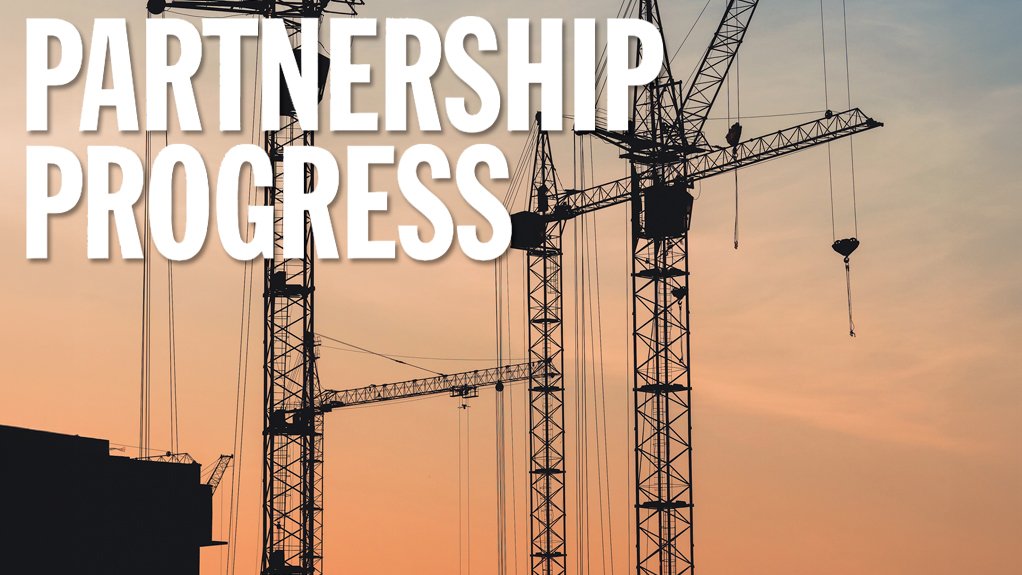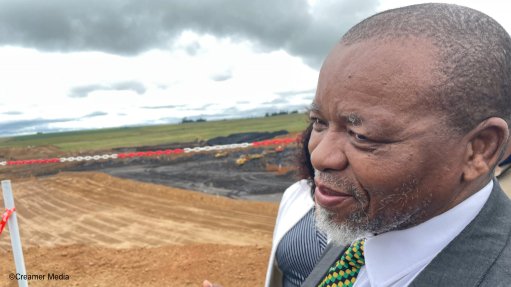Streamlined PPP framework could unlock infrastructure investment





PLENTY POTENTIAL The amended municipal PPP regulations will make it easier to get projects completed
Photo by Adobe
TWO PATHWAYS PPP projects of less than R2-billion will be exempted from the requirement of obtaining National Treasury approvals
Photo by Adobe
UPGRADING INFRASTRUCTURE New and upgraded roads and highways are among the 34 PPP projects that have been completed so far
In February, the National Treasury asked for public comments to be submitted in respect of the newly drafted amendments to the National Treasury Regulations (NTR) 16, and key elements of municipal public-private partnerships (PPPs) legislation, to bring it in line with recommendations based on a complete review of the PPP framework.
The closing date for public comments was April 15, with efforts being made to promulgate the new regulations before the close of the current financial year, the National Treasury tells Engineering News & Mining Weekly.
“The National Treasury has received a substantial number of comments. The process of reviewing the comments received from the public- and private-sector stakeholders is in progress,” a National Treasury spokesperson says, adding that the in-house process to address the comments has to receive legal approval to ensure that due procedure has been followed in addressing the comments. This could lead to potential delays.
“Once these processes are finalised, the National Treasury will communicate the outcomes indicating the comments received and those taken into the revised amendments. As with any legislative amendments processes, these are quite involving and require time to conclude to ensure all comments have been considered,” the spokesperson explains.
The National Treasury says the proposed amendments are intended to reduce the processes required for the planning and procuring of PPPs, resulting in simpler regulations that align with project size and complexity.
The proposed new regulations also aim to clarify the institutional arrangements in terms of who is responsible for what across the PPP project cycle. They are also intended to make it easier for the private sector to engage with investment opportunities while taking into consideration the risks that come with PPPs.
“The publication of the amended regulations and their taking effect is expected to take place within this financial year. However, it is important to take note that the amendments to municipal PPP regulations require Parliamentary scrutiny and this affects the timetable for their publication,” the National Treasury explains.
The proposed amendments make provision for setting up two PPP pathways– one for high-value projects and a simplified version for projects valued at less than R2-billion.
Any PPP projects of less than R2-billion will be exempted from the requirement of obtaining National Treasury approvals. The institution has indicated that such exemption is intended to simplify and expedite the approval process to accelerate the implementation of smaller PPP projects.
The National Treasury says the regulations are being amended to improve the discipline in project execution by limiting the ability of accounting officers to cancel good projects while providing greater certainty for investors.
In terms of NTR 16, the amendments also aim to provide for unsolicited proposals and provide a clear framework to enable the private sector to pursue projects under more clearly defined rules, which the National Treasury believes is a deliberate policy move to signal that South Africa is open to private-sector participation in infrastructure development.
The amendments were drafted following calls by various private-sector stakeholders to simplify PPP processes and requirements to accelerate South Africa’s economic recovery.
The Case for PPPs
The primary advantage of PPPs is their ability to alleviate government's need to make upfront capital investments in infrastructure to deliver services.
In PPPs, the private sector invests capital upfront to build an infrastructure asset, which is then used for service delivery. Thereafter, government refunds the private-sector investor for the assets in instalments that it can afford over an agreed period, which could be 30 years or more, depending on the infrastructure.
“There is a compelling case to use PPPs, considering the challenges faced by the South African fiscus. Unfortunately, there has been a decline in the procurement of services through PPPs in South Africa recently, and the State is eager to reignite private-sector investment in PPPs to accelerate infrastructure development while applying capital to other pressing needs of the State like healthcare, social welfare [and] education,” law firm White and Case says.
However, the question on everyone’s minds is whether the proposed amendments to NTR 16 are sufficient to unlock the PPP potential in South Africa.
“Amongst the obstacles that the South African government must overcome is the credibility crises faced by the PPP market, caused by many factors, including unclear government policy on the use of PPPs, delays in PPP implementation, cancellation of PPP procurement processes without proper reasons and cognisance to PPP stakeholders and their sunken investments at the point of cancellation,” the law firm adds.
Rand Merchant Bank senior legal advisor Viola Ngwenya told SABC News in April that the latest provisions to ensure project continuity in the proposed amendments of the regulations are encouraging.
She said it was important to have a project pipeline that was well understood from a developer’s perspective, as investors previously had no security regarding the continuity of projects. Projects would be cancelled without warning, causing significant insecurity for investors.
Amendments would go a long way towards ensuring that projects are completed, says Black Business Council CEO Kganki Matabane.
Many private-sector investors are reluctant to get involved because they spend significant amounts on feasibility studies, only to have the project cancelled without warning.
The new process for entertaining unsolicited bids is also a significant positive step forward, as it enables the private sector to put forward recommendations for PPPs that the public sector has not yet considered.
Matabane believes that this could increase PPP investment because private-sector investors will have greater agency to put their money where they believe it is needed most and will make the most impact, rather than waiting on government to initiate projects.
Future Prospects
It remains to be seen whether political uncertainty, following the outcome of the national elections on May 29 – with the African National Congress losing its majority for the first time since it came to power 30 years ago – will delay the implementation of the amendments.
Law firm Cliff Dekker Hofmeyr (CDH) notes that South Africa has a record of successfully implementing various PPP projects, even though the bulk of these are accommodation projects. However, other PPP projects have also been implemented in the transport, energy and water sectors.
So far, 34 PPP projects have successfully been completed, valued at about R89.3-billion. Among the most notable are the Gautrain Rapid Rail Link and various renewable-energy independent power producer programmes, which have been rolled out for over a decade.
“This shows that South Africa is well positioned to attract private-sector investment for PPP projects, which is needed for electricity, water and road infrastructure developments. However, PPPs are not sufficiently used for attracting private-sector funding to public infrastructure,” CDH dispute resolution director Jackwell Ferris says, noting that the planned approach to strengthen and modify the framework is a positive one.
He adds that it is high time that the PPP regulatory framework is updated, as it has not changed in more than 15 years, despite significant changes to South Africa’s economic climate and socioeconomic development.
The National Treasury points out that, since the last review of the PPP regulatory framework, new PPP transactions have been declining, from an estimated R10.7-billion in 2011/12 to R5.6-billion in 2019/20, in part because these projects are perceived to involve high costs.
To date, there has been an uptick in PPP projects in 2023/24, with 15 projects at the inception phase and 19 projects at the feasibility study phase. Moreover, six projects have completed feasibility studies and ten projects are ready to start the procurement process.
The National Treasury believes that this signals public‐sector institutions’ continued interest in the PPP market.
“Given the budget constraints, the PPP mechanism offers an alternative option for institutions to tap into private‐sector financing and expertise,” the National Treasury says.
Comments
Press Office
Announcements
What's On
Subscribe to improve your user experience...
Option 1 (equivalent of R125 a month):
Receive a weekly copy of Creamer Media's Engineering News & Mining Weekly magazine
(print copy for those in South Africa and e-magazine for those outside of South Africa)
Receive daily email newsletters
Access to full search results
Access archive of magazine back copies
Access to Projects in Progress
Access to ONE Research Report of your choice in PDF format
Option 2 (equivalent of R375 a month):
All benefits from Option 1
PLUS
Access to Creamer Media's Research Channel Africa for ALL Research Reports, in PDF format, on various industrial and mining sectors
including Electricity; Water; Energy Transition; Hydrogen; Roads, Rail and Ports; Coal; Gold; Platinum; Battery Metals; etc.
Already a subscriber?
Forgotten your password?
Receive weekly copy of Creamer Media's Engineering News & Mining Weekly magazine (print copy for those in South Africa and e-magazine for those outside of South Africa)
➕
Recieve daily email newsletters
➕
Access to full search results
➕
Access archive of magazine back copies
➕
Access to Projects in Progress
➕
Access to ONE Research Report of your choice in PDF format
RESEARCH CHANNEL AFRICA
R4500 (equivalent of R375 a month)
SUBSCRIBEAll benefits from Option 1
➕
Access to Creamer Media's Research Channel Africa for ALL Research Reports on various industrial and mining sectors, in PDF format, including on:
Electricity
➕
Water
➕
Energy Transition
➕
Hydrogen
➕
Roads, Rail and Ports
➕
Coal
➕
Gold
➕
Platinum
➕
Battery Metals
➕
etc.
Receive all benefits from Option 1 or Option 2 delivered to numerous people at your company
➕
Multiple User names and Passwords for simultaneous log-ins
➕
Intranet integration access to all in your organisation






















